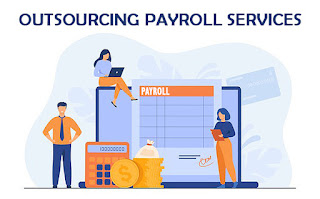Why is Virtual Accounting the Future?
Accounting is often required if you have a company. Some company owners will do this on their own, while others will employ a skilled accountant. Usually, people are going to pay their taxes to an accountant. There is someone with whom they can sit, negotiate their finances, and then sign paperwork to pay their taxes or get a refund. Because of shifts in global culture, it might now be appropriate to pursue virtual accounting as the most idealized way of retaining this industry.
How This Can Be Beneficial?
As the Internet was first launched in the 1990s, people were
curious whether online sales would be a trend. Some have believed that the
demand for online sales is diminishing and disappearing. Two decades on, and we
see that tens of billions of online transactions are going on year by year.
It’s becoming the normal way people want to make their transactions. It’s
easier to buy things from a website and give it to you. Accounting could also
be achieved in a virtual network in the same way.
Is that risky?
There is often a danger potential with moving content
online. Some may choose to carry their data to the disk to be transferred. Secured
connections, however, use very high-grade authentication that can protect
sensitive business information. As long as the accountant you’re working on has
this safe path, automatically moving your documents should never be an issue.
How to Pass from
Physical to Digital Accounting
The change from physically engaging with the accountant to
an entirely automated relationship is taking place even today. People know how
convenient it is to get their taxes done electronically. Communicating with an
accountant does not differ from that. As people become more familiar with
online purchases, it’s just going to be among the many things we’re all doing
on the internet. It may not even require offices for accountants in time, since
it would be virtual.
As technology advances, the need to do online business will
advance. People are seeing how it’s financially relevant. The need to travel to
conferences, training, or even to meet with clients is dropping to the
sidelines. Instead, there will be virtual training and conferences, and also
business entities that can be performed through digital files and face-to-face
communication. Virtual accounting is the future, and it is a future that we are
building right now.
Accounting is often required if you have a company. Some
company owners will do this on their own, while others will employ a skilled
accountant. Usually, people are going to pay their taxes to an accountant.
There is someone with whom they can sit, negotiate their finances, and then
sign paperwork to pay their taxes or get a refund. Because of shifts in global
culture, it might now be appropriate to pursue virtual accounting as the most
idealized way of retaining this industry.
How This Can Be
Beneficial?
As the Internet was first launched in the 1990s, people were
curious whether online sales would be a trend. Some have believed that the
demand for online sales is diminishing and disappearing. Two decades on, and we
see that tens of billions of online transactions are going on year by year.
It’s becoming the normal way people want to make their transactions. It’s
easier to buy things from a website and give it to you. Accounting could also
be achieved in a virtual network in the same way.
Is that risky?
There is often a danger potential with moving content
online. Some may choose to carry their data to the disk to be transferred.
Secured connections, however, use very high-grade authentication that can
protect sensitive business information. As long as the accountant you’re
working on has this safe path, automatically moving your documents should never
be an issue.
How to Pass from
Physical to Digital Accounting



Outsourced Accounting Business leaders and executives assume several responsibilities. Many of these include non-core process activities such as payroll, accounting, bookkeeping and tax compliance. These activities sometimes drain the executives’ time, which they can instead use on strategic business issues.
ReplyDeleteNice Post! Thank you for sharing this info with us CFO Outsourced Service Provider
ReplyDelete